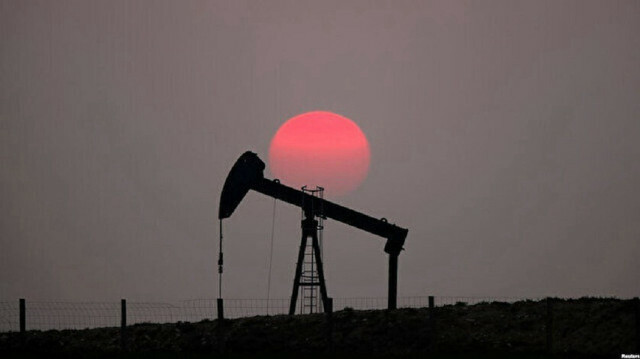
Fear of supply disruptions from new sanctions against Russia, as well as counter-sanctions by Russia, drives prices up
Brent prices rose on Tuesday over growing supply concerns ahead of the meeting of OPEC oil producers and despite the agreement of International Energy Agency (IEA) member countries to release 60 million barrels of oil from storage.
International benchmark Brent crude was trading at $106.51 per barrel at 1728 GMT for an 8.7% gain after closing the previous session at $97.97 a barrel.
American benchmark West Texas Intermediate (WTI) traded at $105.48 per barrel at the same time for a 10.2% increase after the previous session closed at $95.72 a barrel.
Rising geopolitical risks after the Russian attack on Ukraine, as well as the failure to achieve the desired conclusion in negotiations between the two countries, were the main drivers for the rise in oil prices.
New sanctions imposed by Western countries against Russia, as well as possible counter-sanctions by Russia, are escalating fears of supply disruptions to drive up prices.
“Proposed sanctions that would either blacklist Russian oil supplies or blacklist the financial tools to purchase Russian crude is already hitting Urals crude pricing formation as European refineries attempt to reshuffle Urals purchases for other comparable medium sour grades, especially those hailing from the Middle East and OPEC core members Saudi Arabia and Iraq,” said Rystad Energy’s Senior Oil Market Analyst Louise Dickson.
The growing uncertainty in the markets ahead of the meeting of the OPEC group on Wednesday is putting additional upward pressure on oil prices.
To provide some market relief, ministers from International Energy Agency (IEA) member countries agreed to release 60 million barrels of oil from storage “to send a unified and strong message to global oil markets that there will be no shortfall in supplies as a result of Russia’s invasion of Ukraine."
The ministers noted that Russia's invasion comes amid an already-tight global oil market, increased price volatility, the lowest commercial inventories since 2014, and the limited ability of producers to provide additional supply in the short term.
The announcement of an initial release of 60 million barrels, or 4% of IEA members' emergency stockpiles of 1.5 billion barrels, is equivalent to 2 million barrels a day for 30 days.
The coordinated drawdown is the fourth in the history of the IEA since its formation in 1974. Previous collective action was taken in 2011, 2005 and 1991.
Dickson said the emergency oil release announcement from the US and IEA countries would likely not impact the decision of OPEC to increase its quota ceiling by 400,000 barrels per day (bpd) for April 2022.
"However, the pledge from OPEC to increase supply is so far a paper promise, as our supply database indicates that the participating OPEC deal members are in fact producing about 800,000 bpd below stated target levels, adding to the shortness in the supply market and further stoking the bullish price environment," she said.

